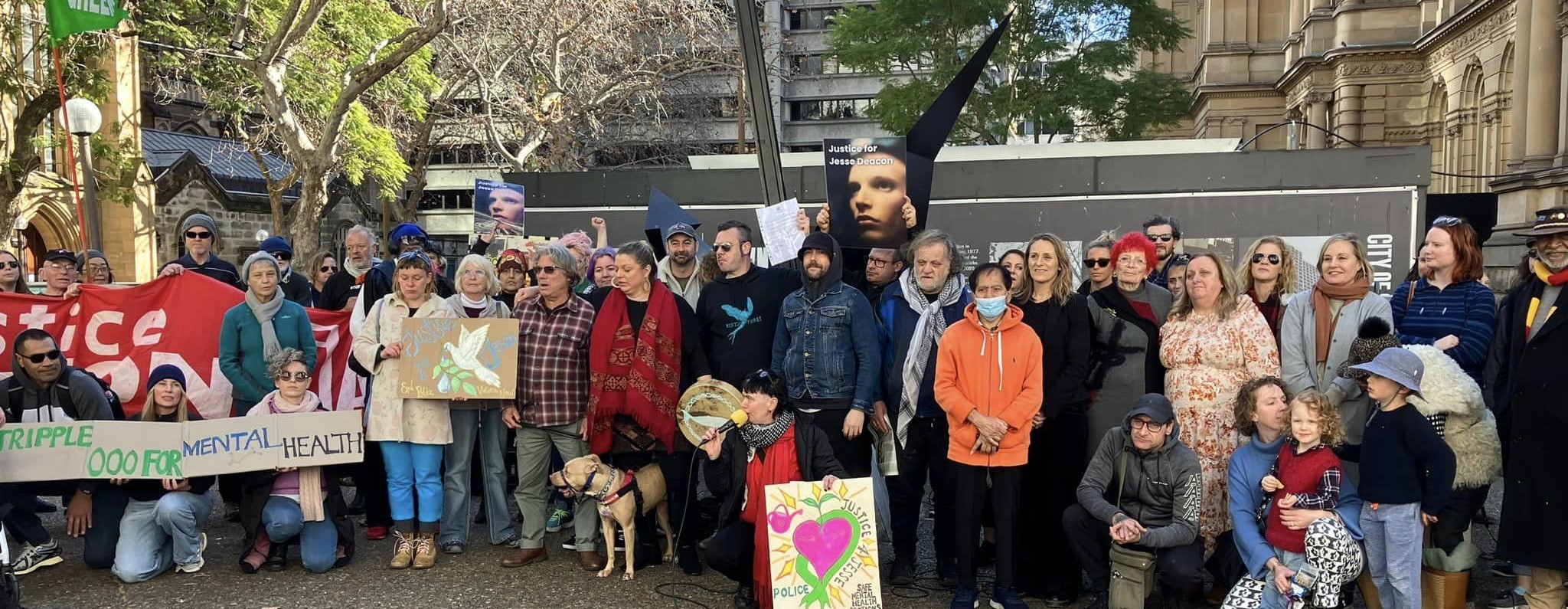
As Jesse Deacon suffered a mental breakdown on July 20 last year, New South Wales Police forcibly entered his home in the Franklyn Street public housing estate in Glebe, and shot him.
Jesse is one of many victims of similar incidents across NSW, a rally at Sydney Town Hall was told on the first anniversary of his death.
About 80 people joined the protest to call on Labor to fund training and ensure mental health professionals are the first responders in a mental health crisis, not the police.
Judy Deacon, Jesse’s mother, organised the action along with Action for Public Housing, Justice Action, Hands Off Glebe, Pride In Protest, NSW Greens and the Socialist Alliance.
rally_for_jesse_action_for_public_housing.jpg

Many of Jesse’s family and friends attended, as well as Leesa and Ron Topic, parents of Courtney Topic, another victim of police violence.
The rally called for health responders to be linked to Triple Zero calls. It said Labor must fully fund supported accommodation for the mental health sector and called for police to be held accountable.
Rally chair Rachel Evans, from Action for Public Housing, called for justice for the families of those who had died.
First Nations Anglican Pastor Ray Minniecon, who acknowledged Country, said “Jesse’s life was cut short by a system that failed him”. More than 55 people experiencing mental illness have been “killed in interactions with police” over the past five years.
“Mental illness is a health problem, not a police issue,” Minniecon said. “The system should be offering care and compassion, instead of repression.
He said police should not be first responders in these situations and “especially for Indigenous communities”.
He pointed to the example of the Western Sydney Health Model Teams that respond to acute distress calls, and Triple Zero calls in South Australia that can be referred to mental health clinicians and paramedics.
Jesse’s mother said her son's death was “a tragedy, not just for me and our family, but for the country”. She said “real funding” is urgently needed to deal with mental health crises.
The coronial inquiry into Jesse’s death will take two to three years. “That’s too long,” she said, “but I assure you all I’m not going anywhere until we receive justice”.
Karl Mayerhofer, a friend of Jesse’s, read out a message from Sydney Lord Mayor Clover Moore, who supports mental health call out lines.
Courtney Topic was killed by police in south-western Sydney in 2015. Leesa Topic said changes were urgently needed and that a “health response will benefit all stakeholders”.
“Police have minimum training in dealing with mental health crises. Mental illness is not a crime, and should be treated as a medical issue.”
Sam Lee, the Police Accountability Officer at Redfern Legal Centre, said Labor had promised change.
More than 80 legal groups and practitioners published an open letter last September calling on the government to urgently fund mental health workers for the frontlines.
Greens NSW MP Sue Higginson said Rose Jackson, Minister for Housing and Mental Health, has promised to stop police being first responders to mental health crises by the end of the year.
But, she said, since NSW Labor is “still running a law-and-order agenda”, which includes giving police more powers “we must remain vigilant”.
[Get in touch with Action for Public Housing for more information.]